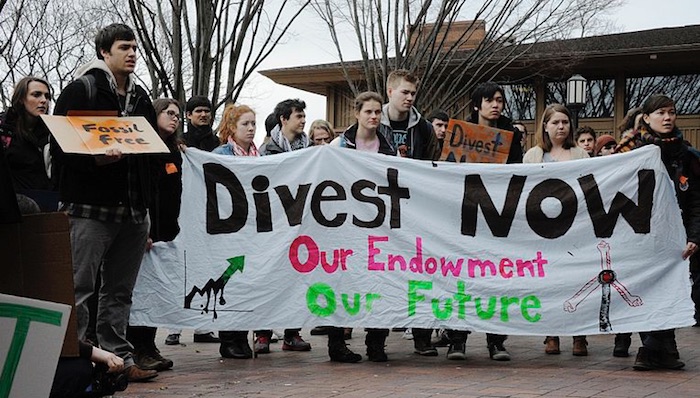
DIVEST FROM CARBON?: Some Vermont lawmakers want state retirees to not have any of their investments traditional energy.
Senate lawmakers last week heard from legislative counsel about a bill that would force managers of public retirement programs to de-invest from carbon-related energy investments such as oil and gas energy production.
An act to divest from fossil fuels
S.42 is proposed legislation relating to divestment of state pension funds of investments in the fossil fuel industry.
Last week, Legislative Council attorney Rebecca Wasserman advised lawmakers of the Senate Government Operations Committee about the bill.
“It is directing the Vermont Pension Investment Commission to do an assessment of all their assets in the Community Public Retirement System to determine what investments there are in the fossil fuel industry and then come up with a plan to divest from those investments by Dec. 31, 2030,” she told the committee.
The lead sponsor of the bill is Sen. Kesha Ram, D-Hinsdale, and several more are listed as co-sponsors.
The bill defines fossil fuels as “petroleum, coal, natural gas, heating oils, light and heavy diesel oil, motor gasoline, propane, butane, residential fuel oils, kerosene, and aviation fuels.” It excludes bio-fuels.
It also says oil infrastructure means “oil or gas wells, oil or gas pipelines and refineries; oil, coal, or gas-fired power plants; oil and gas storage tanks; fossil fuel export terminals; and any other infrastructure used exclusively for fossil fuels.”
What it would change and what will it cost?
Wasserman said that the bill would require Vermont Pension Investment Commission, in consultation with the Office of the State Treasurer, to review the extent to which the assets of the Vermont State Employees Retirement System, the State Teachers Retirement System, and the Municipal Employees’ Retirement System are invested in “stocks, securities, or other obligations of any fossil fuel company or any subsidiary, affiliate, or parent of any fossil fuel company.”
As for funding, this initiative asks for $100,000 from Vermont’s general fund to help get this work done.
Will it cost retirees?
Sen. Robert Norris, R-Franklin, the committee clerk, noted that divesting could harm retirement plans.
“It seems to me that both present and future state retirees may be taking a hit on their retirement here,” he said.
Sen. Alison Clarkson, D-Windsor, suggested that the goal isn’t to disrupt returns for the retirees.
“Their responsibility right now is to maximize profits with as little risk as possible,” she said. “So, I mean, that’s existing law, we’re not proposing to change that. … I think the objective is to continue to do that, just choosing different very profitable investments which many other foundations and universities have chosen to do.”
Clarkson added: “At no point is anyone interested in putting retirement benefits at risk. That is not our objective at all. … We are committed to decarbonizing our investments.”
Research shows mixed results from divestment
A Stanford University 2022 research paper illustrates that when a disgruntled investor chooses to dump a stock, that always means another investor is buying it, and that the net impact of divestment has been “too small to meaningfully affect real investment decisions.”
Bill Gates told the Financial Times in 2019 that divestment has no impact on carbon output whatsoever.
“Divestment, to date, probably has reduced about zero tons of emissions,” Gates said. “It’s not like you’ve capital-starved [the companies] making steel and gasoline.”
Not Vermont’s first go-around for divestment
Divestment of the state’s retirement plans from carbon-based energy was proposed by former Gov. Peter Shumlin, who backed divestment in 2016 but faced resistance from the then State Treasurer Beth Pearce.
Conservatives in other states using divestment to fight ESG
Liberal lawmakers seeking to pull resources away from carbon-based energy aren’t the only ones who’ve considered divestment as a strategy. In Texas, Comptroller Glenn Hegar in August directed state agencies to divest from companies promoting ESG (Environmental, Social, and Governance), a far-left-leaning set of policy standards that companies have been adopting, The Center Square reported.
Michael Bielawski is a reporter for True North. Send him news tips at bielawski82@yahoo.com and follow him on Twitter @TrueNorthMikeB.



An interesting follow-up article would be whether the modest modifications made to the state’s pension fund has had any significant results. I believe it was still based on overly optomistic projected growth, and given the stock market in the last year we are likely even further in the hole. This is something everyone is ignoring, perferring to believe the problem is solved. TNR might be are only hope of having reporters and commentators look into this.
How can the legislature keep adding programs when unable to meet obligations which are likely keep requiring more and more large sums in the future.
The problem with the State’s retirement program is that it is a ‘defined benefit’ system, the cost of which can’t be predicted. Changing the retirement program to a ‘defined contribution’ system (as are the vast majority of private sector programs in which the beneficiary controls the investments), is the only reasonable recourse.
Yes divest from excellent return of investment and instead invest in crap with no return so you can tax the citizens for the difference.. what a bunch of ijits.. ruining the portfolios just as they ruin the state. Nice job voters you couldn’t pick a worse lot of fools.
This may represent a profitable opportunity for investors to buy gas/oil stocks on the dip – may drive them above pre-divestment levels. The AGW cult may already have peaked; Big Oil will survive this brief manifestation of religious fanaticism. I also have no doubt some politicians will find ways to profit from this.
“big oil” drives the “green” market and owns most of the socially acceptable forms of non-power generation as it is. Win/win for them……lol…just another profit center. Irony lost on the left…